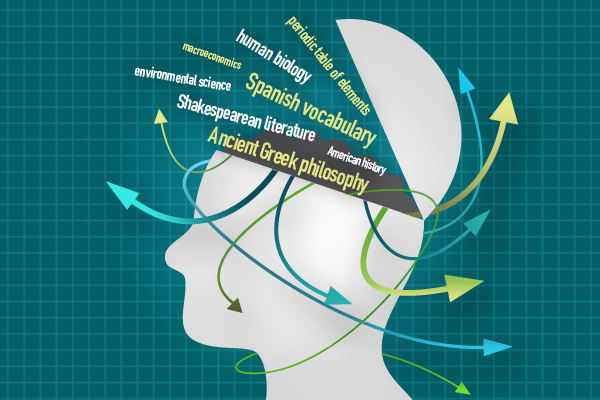Low results for higher learning

Who was the 22nd president of the United States?
If you learned this in HST 115, you likely don’t remember. Don’t worry; you’re not alone. A recent study found that many students fail to retain information they learned during their first years of college (It was Grover Cleveland, by the way, who was also the 24th president).
Learning too little
“Academically Adrift: Limited Learning on College Campuses,” a book published Jan. 15, details a study of data compiled by the Collegiate Learning Assessment.
The study found that 45 percent of the 2,300 students examined didn’t demonstrate a significant improvement in a range of “critical” skills, such as complex reasoning and writing, during their first two years of college, and that 36 percent of students had the same results over the entire four-year span of a bachelor’s degree.
Sociologists Richard Arum of New York University and Josipa Roksa of the University of Virginia, who wrote the book, blame the lack of retention on a homework deficit.
According to them, teachers are simply not assigning enough homework. Thirty-two percent of students did not take any courses the previous semester that required 40 or more pages of assigned reading each week, and half of the students were not required to write more than 20 pages over the course of the semester.
At Oakland University, the results have a scary similarity.
“I think most faculty would agree that students do not seem to be doing as well these days as they used to,” said Ronald Sudol, dean of the college of arts and sciences. “We see this impression reflected in lower graduation rates.”
OU’s projected six-year graduation rate for 2011 is 50 percent, while the first year retention rate is 76 percent, according to data compiled by the university.
Study methods matter
On the fourth floor of Kresge Library, Sheereen Syed, a sophomore majoring in health sciences, studies with three friends.
Spending about three hours a week studying, she typically “skims” the material, but manages to succeed in school, as evidenced by her 3.3 grade point average.
On average, students study 12-14 hours per week, and they’re better off if those hours are spent alone, according to “Adrift.”
“I do independent and group study,” she said. “Whatever happens to work out, depending on my friend’s schedules.”
Involvement has low impact
Though OU is known as a commuter school, it has close to 200 student organization, so some students already bogged down with school work face extra burdens.
Tom Cruz, for instance, is the multicultural affairs director for student congress, a member of two honor societies — Pi Sigma Alpha and Phi Alpha Theta — and founded the OU chapter of Tau Kappa Epsilon and Circle K, a service organization.
Still, he sleeps for 9-10 hours a night, which he cites as the reason for his academic success.
“I make sure I’m mentally awake for all my classes and I think that suits me better than reading,” Cruz said.
Cruz, a senior double majoring in political science and history and triple minoring in international relations, economics and communications, recently bought a book for class — something he hadn’t done since his freshmen year.
He said he finds a majority of his course material online and therefore doesn’t require textbooks.
He does, however, take extensive notes during class and takes time out every night to research information he has an interest in.
According to the study, students belonging to either a fraternity or a sorority can expect to see “smaller gains,” while those involved in general don’t see much of a difference either way.
Cruz maintains a 3.3 GPA despite his heavy involvement on campus.
Generally a waste
Dr. Louis Gallien Jr., dean and professor of education and health services, said students don’t take their first two years seriously, nor are they expected to.
“You will hear the popular phrase, even from professors, ‘well, you have to get these out of the way,'” Gallien said. “Well, why are we requiring this list of courses or distribution requirements if they are in the way of a good education?”
As a social work major, sophomore Lisa Rumptz needs to complete at least 40 general education credits, as well as at least 16 additional college distribution requirements.
“Gen-Eds are necessary for writing, but some are ridiculous and aren’t needed,” Rumptz said. “I think they should be based off the major. I had to take theater.”
With her general education requirements mostly met, Shakita Billy, a junior majoring in political science, realized she wanted to go to law school and had to improve her GPA.
“I didn’t really get into the college determination mode until the latter half of my sophomore year,” she said.
Professors, too, are realizing that the first two years are lax and are focusing on ways to address it.
“Campus leaders have been engaged in a series of meetings to fine-tune our strategic plans,” Sudol said. “I think you will see as one of the outcomes of that process, a renewed desire to raise academic standards and improve student learning outcomes by introducing high-impact practices that enable students to be more fully engaged with their learning.”













